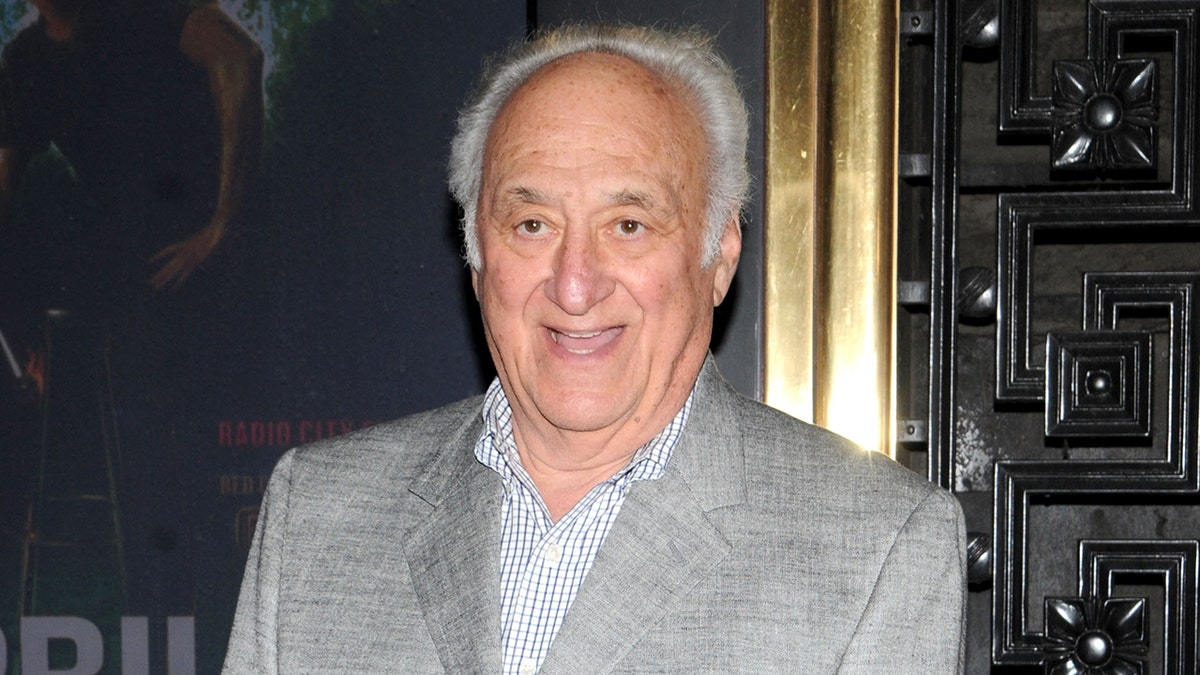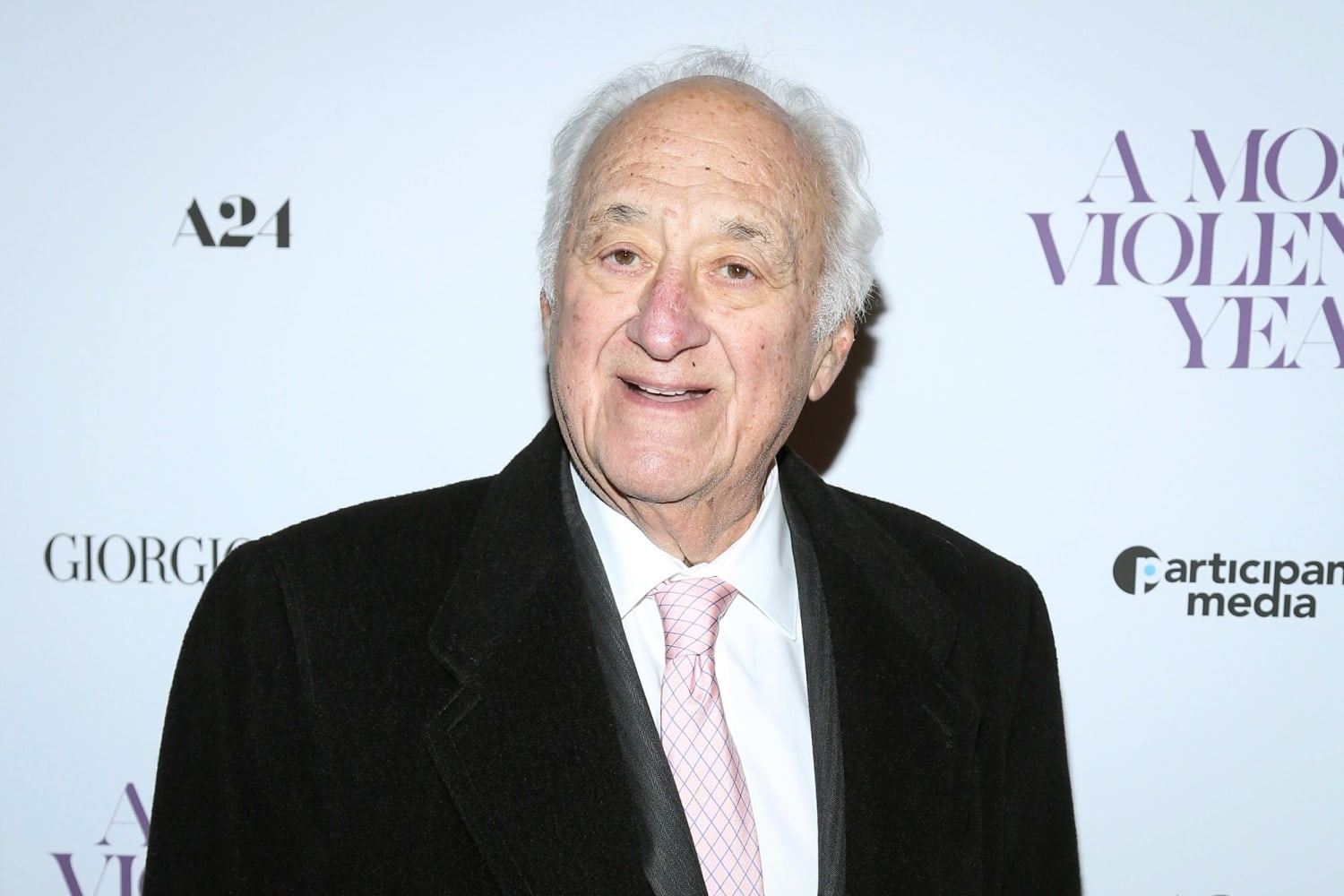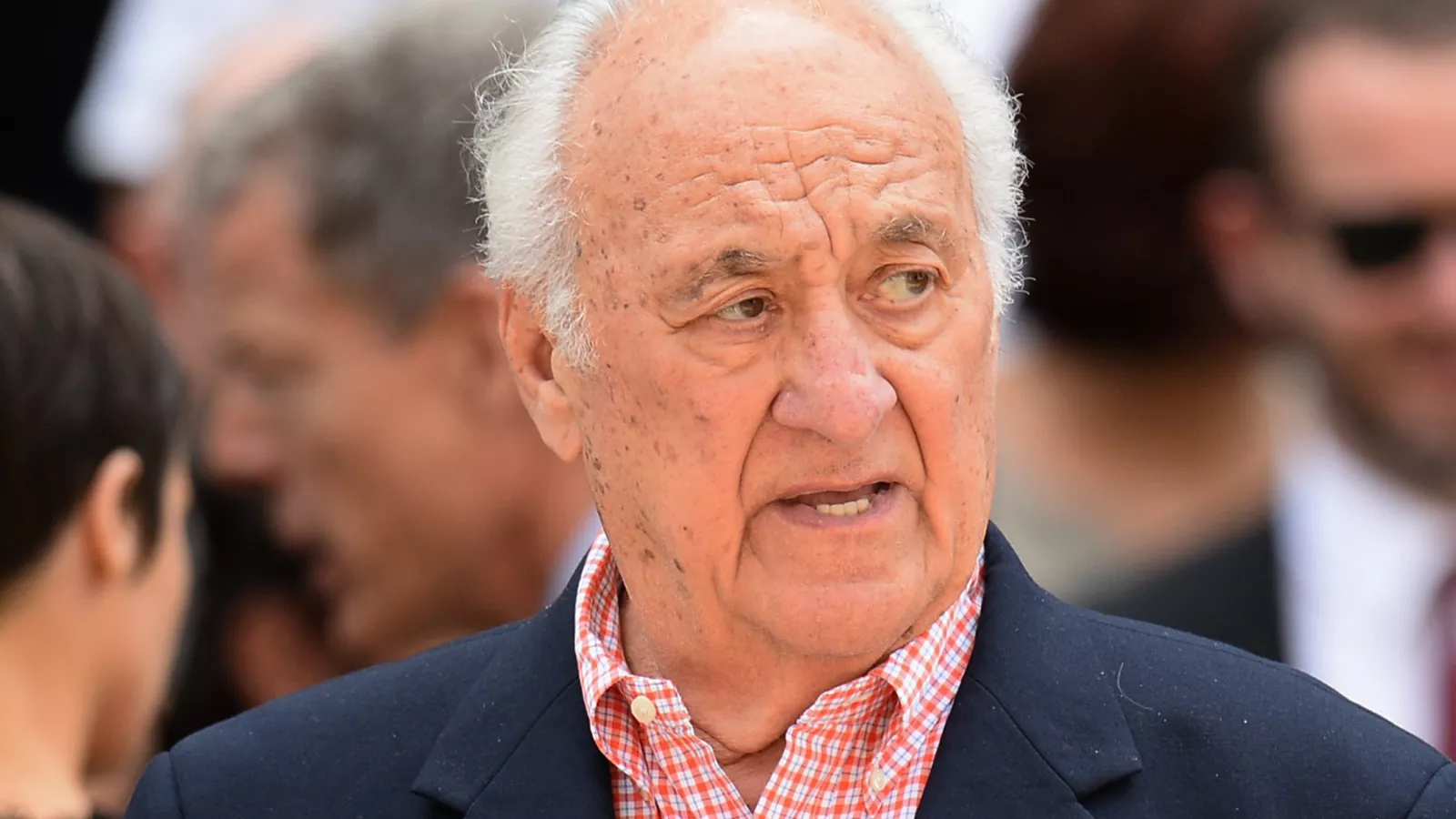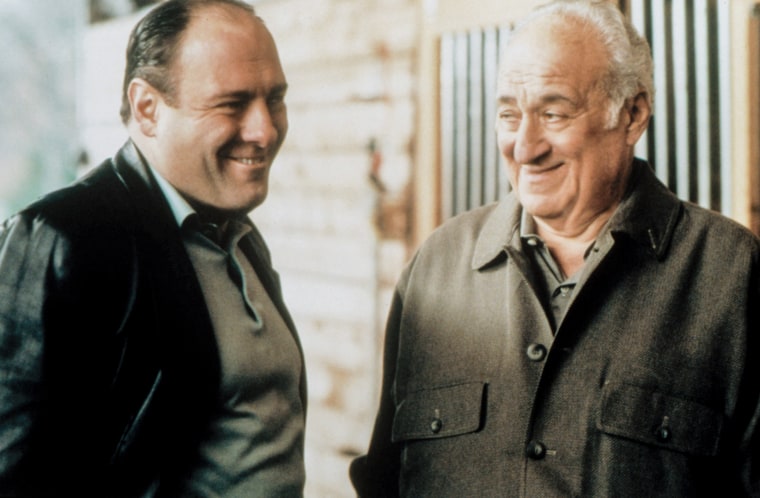
The passing of Jerry Adler at the remarkable age of 96 on August 23, 2025, marks the end of an extraordinary career in American entertainment, one that defied conventional trajectories and showcased a profound versatility spanning over seven decades. A resident of New York, Mr. Adler’s life was a testament to dedication and an unexpected reinvention, transitioning from a celebrated, behind-the-scenes Broadway veteran to a widely recognized and acclaimed actor in his later years. His death, confirmed by his daughter Alisa Adler and noted in an obituary from the Riverside Memorial Chapel, leaves behind a legacy defined by both the meticulous craft of stage management and the captivating art of performance.
For many, Jerry Adler became a familiar face in the twilight of his career, notably as Herman “Hesh” Rabkin on “The Sopranos” and Howard Lyman on “The Good Wife.” Yet, these indelible screen roles were merely the second act in a life deeply intertwined with the fabric of American theater. Prior to his widespread visibility in film and television, Mr. Adler cultivated a storied career on Broadway, accumulating more than 50 credits as a stage manager, production supervisor, and director. This dualistic professional journey, from the quiet discipline of backstage orchestration to the vibrant demands of front-facing acting, illustrates a rare adaptability and a relentless passion for storytelling.
His unique path, characterized by a late-life pivot that brought him wider attention, is a compelling narrative in itself. At an age when many contemplate retirement, Mr. Adler embarked on a new chapter, amassing 60 film and television credits and earning the admiration of his peers. This article delves into the various facets of Jerry Adler’s impactful life, tracing his lineage in the theater, exploring his foundational contributions to Broadway, detailing his serendipitous entry into acting, and examining some of the most significant roles that cemented his place in the annals of popular culture.

1. **A Legacy Forged Backstage: The Early Broadway Years**Jerry Adler’s entry into the theatrical world was, by his own admission, shaped by deep family roots. His father, Philip Adler, was a prominent figure in the industry, serving as the general manager of the esteemed Group Theater, a collective co-founded by luminaries like Harold Clurman, Cheryl Crawford, and Lee Strasberg, which laid the groundwork for method acting. Philip Adler’s influence extended further, as he worked as a producer, company manager, and general manager across two dozen Broadway productions. This environment naturally drew young Jerry into the world of theater, making his initial steps almost predestined.
In a March 2015 interview with TheaterMania, Jerry Adler candidly remarked, “I’m a creature of nepotism.” He elaborated on this by recalling his first professional opportunity: “I got my first job when I was at Syracuse University and my father, the general manager of Gentlemen Prefer Blondes, called me [because] there was an opening for an assistant stage manager.” This call led him to skip school and embark on a career that would define the first half of his professional life. This foundational experience, acquired directly under the wing of his experienced father, provided him with an unparalleled introduction to the intricate workings of Broadway.
His early years were spent mastering the demanding craft of stage management, a role critical to the seamless execution of live theater. This involved orchestrating myriad elements from lighting cues to actor entrances, ensuring that every performance unfolded precisely as intended. He even recounted the practical challenges, such as leading Carol Channing, the star of “Gentlemen Prefer Blondes,” by flashlight due to her severe near-sightedness. These formative experiences instilled in him a meticulousness and a deep understanding of theatrical production that would serve him throughout his diverse career.

2. **Mastering the Boards: A Prolific Broadway Career**Beyond his initial foray, Jerry Adler quickly established himself as a central figure in Broadway’s operational landscape. His dedication and expertise earned him a remarkable reputation, leading to more than 50 credits as a stage manager, production supervisor, and director. This extensive body of work positioned him as a truly indispensable presence behind the curtain, a craftsman whose efforts underpinned many of the era’s most celebrated theatrical achievements. His involvement touched a wide array of productions, showcasing his versatility and reliability in demanding roles.
A significant highlight of his stage management career was his work on the original 1956 production of the hit musical “My Fair Lady.” This iconic show, starring Rex Harrison as Henry Higgins and Julie Andrews as Eliza Doolittle, became a landmark in Broadway history, and Adler played a crucial role in its smooth running. He assisted the famous Broadway stage manager Samuel “Biff” Liff, contributing to the show’s legendary success and demonstrating his capability to manage productions of the highest caliber. His hands-on experience with such a monumental show provided him with invaluable insights into large-scale theatrical logistics.
His prolific contributions continued across several decades, encompassing a diverse range of plays and musicals. Mr. Adler’s subsequent credits included serving as the production stage manager of “The Apple Tree” (1966), a musical deftly directed by the acclaimed Mike Nichols, and as production supervisor for “Dear World” (1969), a production for which Angela Lansbury received a Tony Award for best actress in a musical. These roles required not only organizational prowess but also a keen artistic sensibility, solidifying his reputation as a trusted and integral force in Broadway production.

3. **The Director’s Chair: Critical Acclaim in Theater**Having proven his mettle in stage management and supervision, Jerry Adler expanded his theatrical repertoire by stepping into the role of director, where he garnered further critical acclaim. This transition demonstrated his comprehensive understanding of stagecraft, moving from the logistical orchestration of a production to its artistic interpretation and guidance. His directorial endeavors were marked by innovation and a discerning eye, showcasing his ability to shape performances and narratives effectively.
In 1973, Mr. Adler directed the satirical revue “Good Evening,” starring the renowned comedic duo Dudley Moore and Peter Cook. This production was highly regarded, earning a special Tony Award for its unique blend of wit and performance. His successful helming of such a distinct and critically appreciated show underscored his talent for guiding creative endeavors and bringing comedic vision to life on the Broadway stage. It represented a significant milestone in his evolving career.
Three years later, in 1976, he returned to a familiar classic, directing a revival of “My Fair Lady,” the very show he had helped stage-manage in its original incarnation. This revival proved highly successful, running for 377 performances and starring Ian Richardson and Christine Andreas. For his direction, Mr. Adler received a Drama Desk Award nomination, and George Rose, who played Eliza’s often-inebriated father, earned a Tony for his supporting role. These accolades cemented Adler’s reputation not just as a backstage master, but as a formidable artistic director with a deep understanding of theatrical storytelling.

4. **A Late Bloom: The Unexpected Pivot to Acting**After decades dedicated to the intricacies of Broadway’s behind-the-scenes operations, Jerry Adler’s career took an entirely unforeseen turn at an age when most consider retirement. He candidly revealed to TheaterMania, “I probably would have retired when I was sixty-five as a stage manager and director. But then at sixty-five, I started acting.” This serendipitous shift marked the beginning of his remarkable second act, transforming him from a seasoned theater veteran into a prolific character actor with widespread recognition.
This unexpected pivot was initiated by what he later termed a “fluke.” Donna Isaacson, a casting director and a friend of one of his children, had a hunch about a hard-to-fill role in the film “The Public Eye” (1992). Despite having no prior acting experience and never having entertained the idea, Adler, curious to understand how actors felt, agreed to an audition. Director Howard Franklin, after auditioning dozens of actors, famously got “chills” when Adler read for the part of a gruff newspaper columnist with a compassionate side, recognizing an authentic quality perfectly suited for the role.
Mr. Adler also shared his initial feelings about this new venture with The Jewish newspaper The Forward, stating, “I’d never acted before. I’d never entertained the idea of acting; it was an unusual thing. But I was getting ready to retire from the production end anyway.” He had moved to California in the 1980s, serving as a stage manager on the NBC soap opera “Santa Barbara,” and had described himself as being in the “twilight of a mediocre career” as a stage manager and director on Broadway. The acting opportunity, therefore, arrived at a pivotal moment, opening a new and vibrant chapter in his life.

5. **The Hollywood Introduction: Early Film and TV Roles**Following his unexpected entry into acting, Jerry Adler swiftly began to accumulate a diverse array of film and television credits, establishing his presence as a character actor. His first television credit came in 1991, at age 62, with a guest spot on the coming-of-age comedy “Brooklyn Bridge.” He recounted in his 2024 memoir, “Too Funny for Words,” that Julia Louis-Dreyfus’ husband, Brad Hall, recruited him for this role, asking if he was an actor and explaining he needed a character for a pilot. This seemingly small part was, as Adler wrote, his “first acting assignment in what would become a second career.”
His early film roles also quickly showcased his distinctive presence. Beyond “The Public Eye,” he appeared as a kindly-seeming older neighbor whose wife suddenly dies in Woody Allen’s 1993 film “Manhattan Murder Mystery.” Juliet Taylor, who cast him in the film, described him to The New York Times in 1992 as having a “wonderful kind of Everyman quality” with his hangdog air and rubbery face that could shift from avuncular to coldly calculating. She added that he delivered his lines with “authority,” qualities that endeared him to casting directors and audiences alike.
Mr. Adler became a frequent presence on network television throughout the 1990s, securing guest spots on shows like “Quantum Leap” and “Law & Order.” Notably, he played Rabbi Alan Schulman on the CBS comedy-drama “Northern Exposure,” a series executive produced by David Chase. This early collaboration with Chase proved to be particularly significant, paving the way for one of Adler’s most iconic roles and foreshadowing the profound impact he would soon have on television audiences. He also had a regular role as Mr. Wicker, a New York building superintendent, on NBC’s popular sitcom “Mad About You.”

6. **The Iconic Adviser: Herman “Hesh” Rabkin on “The Sopranos”**Jerry Adler’s portrayal of Herman “Hesh” Rabkin on HBO’s seminal crime drama “The Sopranos” became arguably his most recognizable and beloved role, cementing his place in television history. His initial involvement, much like his entry into acting, was purely by chance. When David Chase was developing the pilot for “The Sopranos,” he reached out to Adler for what was intended to be a single cameo appearance. “When David was going to do the pilot for ‘The Sopranos’ he called and asked me if I would do a cameo of Hesh,” Adler told Forward in 2015. “It was just supposed to be a one-shot.”
However, Mr. Adler’s compelling performance and the unique quality he brought to the character quickly captivated Chase and the show’s producers. “They liked the character,” Adler explained, leading to his retention for the entire six-season run of the acclaimed series, from its 1999 pilot through the final season in 2007. As Hesh Rabkin, a Jewish music mogul, loan shark, and trusted associate of Tony Soprano, Adler created a character who was an indispensable, albeit unconventional, part of the crime family’s inner circle. He provided strategic and psychological advice to Tony, often huddling with the “paisanos” in the backroom of Satriale’s Pork Store or the Bada Bing! strip club.
Hesh’s unique position as a Jewish confidant meant he had no possibility of becoming a “made member” of the Italian crime family. Yet, he remained an unwavering presence, offering pragmatic counsel and, at times, financial assistance. He appeared in some of the show’s most memorable arcs, including helping Tony’s protégé Christopher and his girlfriend Adriana in their ill-fated venture into the music business, and joining Tony in a horse-racing enterprise. Even when their relationship soured in the final season over a large loan, Hesh remained a pivotal, complex character, embodying a blend of wisdom, resilience, and quiet authority that Adler brought to life with remarkable depth.




